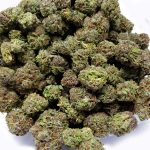THCA-rich hemp oil, a source of Tetrahydrocannabinolic acid A (THCA), is increasingly recognized for its potential health benefits, which are distinct from the psychoactive effects of THC. This non-psychoactive cannabinoid interacts with the endocannabinoid system, influencing mood, sleep, appetite, and pain sensation, among other bodily functions. Preliminary studies suggest THCA may offer anti-inflammatory, analgesic, neuroprotective, antiemetic, and antibacterial properties, with potential applications in managing conditions like anxiety, neuropathic disorders, inflammation, and even inhibiting cancer cell growth. THCA's benefits are under investigation, and it's crucial to consult healthcare professionals for safe integration into health regimens, considering individual responses to cannabinoids. THCA-rich hemp oil is linked to wellness support, with ongoing research highlighting its anti-inflammatory, antioxidant activity, and overall health advantages. Users should approach dosage with precision, as individual differences can affect how THCA is utilized within the body, and should always source high-quality products from reliable suppliers to minimize potential negative effects. The exploration of thca rich hemp oil benefits continues to unfold, offering a promising avenue for natural health support.
Exploring the multifaceted effects of THCA-rich hemp oil, this article delves into its therapeutic potential and the nuances of incorporating it safely into wellness routines. From its benefits to understanding its mechanisms of action, we aim to provide a comprehensive guide on THCA rich hemp oil, highlighting its advantages while addressing potential side effects. Join us as we navigate the science behind this compound and offer practical advice for integrating THCA-rich hemp oil into your health regimen effectively.
- Unveiling the Potential of THCA-Rich Hemp Oil: An Overview
- The Therapeutic Edge of THCA: Understanding Its Benefits
- Safety Considerations and Side Effects of THCA-Rich Hemp Oil Consumption
- Navigating Dosage: Factors Influencing THCA's Impact on Health
- The Science Behind THCA: Mechanisms of Action and Health Implications
- Integrating THCA-Rich Hemp Oil into Your Wellness Routine Safely and Effectively
Unveiling the Potential of THCA-Rich Hemp Oil: An Overview

Throughout recent years, THCA-rich hemp oil has garnered significant attention due to its potential health benefits. Tetrahydrocannabinolic acid (THCA) is a non-psychoactive cannabinoid found in the hemp plant, which, upon heating, converts into the well-known THC. THCA rich hemp oil benefits are at the forefront of natural remedies for various conditions, with research suggesting its anti-inflammatory and neuroprotective properties. It is believed to support the body’s endocannabinoid system, a complex cell-signaling system identified in the early 1990s, which helps establish and maintain homeostasis. This system plays a crucial role in regulating a range of functions and processes, including mood, sleep, appetite, memory, reproduction, and pain sensation.
The potential of THCA-rich hemp oil extends beyond its use as a dietary supplement. It is being explored for its therapeutic effects, particularly in managing symptoms related to inflammation, anxiety, and neuropathic disorders. Preclinical research indicates that THCA may have antiemetic, antibacterial, and anti-nausea qualities. Additionally, it shows promise in the realm of cancer therapy due to its ability to inhibit the growth of cancer cells. As a natural compound, THCA rich hemp oil benefits are becoming increasingly recognized, with ongoing studies aiming to further elucidate its effects and establish optimal usage protocols for various health concerns. It is important for potential users to consult healthcare professionals before incorporating THCA-rich hemp oil into their wellness regimen, especially given individual differences in response to cannabinoids.
The Therapeutic Edge of THCA: Understanding Its Benefits

Cannabidiolic acid (THCA) is a non-psychoactive compound found in cannabis and hemp plants that has garnered attention for its potential therapeutic properties. Extracted from THCA rich hemp oil, this beneficial phytocannabinoid offers a range of wellness advantages. Research indicates that THCA may support the body’s endocannabinoid system, which plays a crucial role in regulating various physiological processes, including pain sensation, mood, appetite, and immune system responses. Unlike its psychoactive counterpart delta-9-tetrahydrocannabinol (THC), THCA does not induce a high; instead, it provides benefits that are increasingly being explored for their health-promoting potential.
One of the most significant advantages of THCA is its anti-inflammatory properties, which may help alleviate symptoms associated with inflammatory conditions. Studies suggest that THCA can interact with the CB2 receptors in the endocannabinoid system, potentially offering relief for those experiencing inflammation-related pain or discomfort without the mind-altering effects of THC. Additionally, THCA rich hemp oil benefits extend to neuroprotection, as preliminary research has indicated its possible role in supporting brain health and neurological function. Its antioxidant properties are also being studied for their potential to combat oxidative stress and promote overall well-being. As the scientific community continues to investigate THCA’s effects, users are increasingly turning to THCA rich hemp oil as a natural means to harness its therapeutic edge.
Safety Considerations and Side Effects of THCA-Rich Hemp Oil Consumption

Consuming THCA-rich hemp oil, which is derived from the cannabis plant and contains tetrahydrocannabinolic acid (THCA), a non-psychoactive compound, has been associated with various health benefits. These potential benefits include anti-inflammatory, analgesic, and neuroprotective effects, among others. However, while exploring the positive aspects of THCA, it is imperative to consider safety precautions and potential side effects. Unlike its psychoactive counterpart THC, THCA does not induce a high; yet, it can still interact with the body’s endocannabinoid system. Users should be aware that some individuals may experience mild side effects such as dry mouth, mild anxiety, or drowsiness upon ingestion of THCA-rich hemp oil. These reactions are typically minor and subside once the user adjusts to the substance. It is also worth noting that THCA metabolizes into THC when exposed to heat or when ingested; thus, individuals who consume THCA-rich hemp products should be mindful of their intake to avoid unintended psychoactive effects. As with any dietary supplement, it is advisable for consumers to consult with a healthcare professional before incorporating THCA-rich hemp oil into their wellness regimen, particularly if they are pregnant, breastfeeding, have a pre-existing health condition, or are taking other medications. Adhering to recommended dosages and purchasing products from reputable sources can help mitigate risks and maximize the potential THCA rich hemp oil benefits.
Navigating Dosage: Factors Influencing THCA's Impact on Health

When incorporating THCA-rich hemp oil into one’s health regimen, understanding dosage is paramount for optimizing its potential benefits while minimizing any adverse effects. THCA, or tetrahydrocannabinolic acid, is the precursor to THC and exhibits distinct properties. The body’s unique endocannabinoid system, individual metabolism, and specific health conditions can all influence how THCA interacts within the body. Factors such as weight, metabolism, and personal physiology play significant roles in determining the ideal dosage for an individual. It is advisable to start with a low dose of THCA-rich hemp oil, monitoring effects before gradually increasing intake. This approach allows users to tailor their dosage to achieve the desired therapeutic benefits without overstepping a threshold that could lead to unwanted side effects. Conversely, those experienced with cannabinoid use might adjust dosages based on feedback from their bodies, but it is always recommended to consult healthcare professionals for personalized advice. Additionally, the quality and concentration of THCA in hemp oil products can vary between manufacturers, necessitating careful consideration when selecting a product and determining the appropriate dosage. Regularly reviewing product labels and consulting with knowledgeable sources ensure that users are fully informed about the benefits and potential side effects associated with THCA-rich hemp oil usage.
The Science Behind THCA: Mechanisms of Action and Health Implications

Delta-9-tetrahydrocannabinol (THC) and cannabidiol (CBD) have received considerable attention for their therapeutic properties, yet another cannabinoid, tetrahydrocannabinolic acid A (THCA), has emerged as a subject of interest due to its potential health benefits. THCA is the non-psychoactive precursor of THC and is abundant in hemp. It interacts with the body’s endocannabinoid system through two primary receptors, CB1 and CB2, which are involved in regulating various physiological processes.
Research indicates that THCA exhibits anti-inflammatory, antiemetic, antibacterial, and neuroprotective properties, making it a promising candidate for therapeutic use. Its mechanism of action involves inhibiting the fatty acid amide hydrolase (FAAH) enzyme, which degrades anandamide, an endocannabinoid associated with mood regulation and pain sensation. By preventing the breakdown of anandamide, THCA can increase its levels in the body, potentially leading to a reduction in anxiety and pain. Additionally, THCA’s anti-inflammatory effects are believed to stem from its ability to modulate cytokine production, which could be beneficial for conditions like arthritis. The use of THCA-rich hemp oil has been associated with a variety of benefits, including the alleviation of nausea and improvement in appetite, without the psychoactive effects typically linked with THC. As scientific investigation continues, the full spectrum of THCA’s health implications is becoming clearer, offering new avenues for natural health support.
Integrating THCA-Rich Hemp Oil into Your Wellness Routine Safely and Effectively

Incorporating THCA-rich hemp oil into a wellness routine can offer a host of potential benefits, with its non-psychoactive nature making it an attractive option for individuals seeking the therapeutic properties of cannabinoids without the high associated with THC. THCA, or tetrahydrocannabinolic acid, is the raw form of THC found in raw cannabis plants and has been studied for its potential anti-inflammatory, analgesic, and neuroprotective effects. To reap these benefits safely and effectively, it’s crucial to understand dosage guidelines and to consider the quality of the product you’re using. Always opt for THCA-rich hemp oil from reputable sources that provide third-party lab test results to ensure purity and potency. Begin with a low dose to assess how your body responds, as individual sensitivities can vary. Gradually adjust the dosage as needed, adhering to the product’s recommended guidelines or a healthcare professional’s advice. Consistency is key when integrating THCA-rich hemp oil into your wellness routine; regular use may help maintain optimal health benefits over time. Additionally, it’s important to consider how THCA-rich hemp oil may interact with other medications you are taking, so consultation with a healthcare provider is always recommended before starting any new supplement. By following these steps, you can effectively and safely incorporate this beneficial cannabinoid into your wellness regimen.
In conclusion, THCA-rich hemp oil holds promising potential for wellness, with a breadth of therapeutic benefits supported by scientific research. However, it is imperative to approach its consumption with discernment, considering the safety aspects and potential side effects as outlined in this article. Navigating the optimal dosage tailored to individual health factors is key to harnessing the advantages of THCA while minimizing risks. By understanding the mechanisms of action and health implications of THCA, consumers can integrate this cannabinoid into their wellness routines judiciously. As with any health supplement, consistency and informed use are crucial for safe and effective outcomes. Embracing the benefits of THCA-rich hemp oil responsibly can contribute significantly to one’s health regimen, as long as guidelines and safety measures are adhered to.


